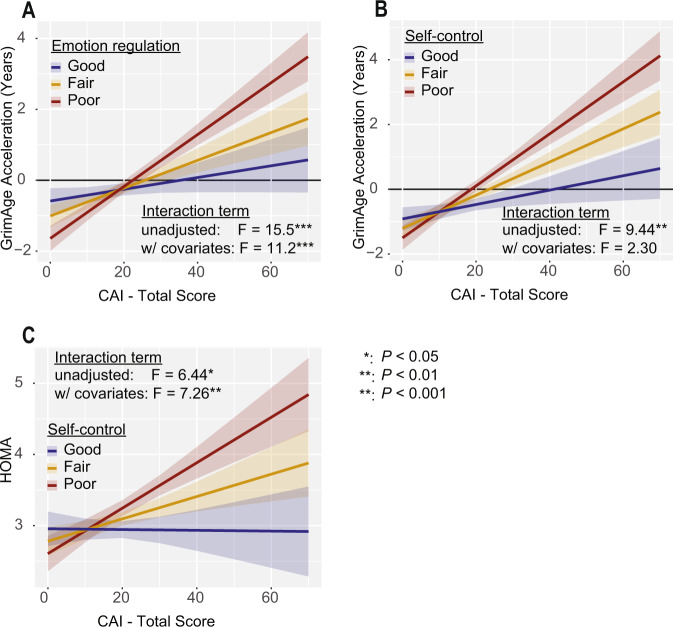Fig. 3. Psychological resilience factors moderate the effects of cumulative stress on GrimAge Acceleration and physiologic stress pathways.
A Individuals with stronger emotion regulation (as measured by lower DERS scores) suffer less GAA at high stress than individuals with poor emotion regulation before (GAA ~ CAI X DERS P = 9.51e−5; GAA ~ CAI X DERS + Covariates: P = 8.82e−4) and after accounting for covariates. For panel A, “good” represents the slope at the 25th percentile of DERS, “fair” at the 50th percentile, and “poor” the 75th percentile. B Better self-control (as measured by higher B-SCS scores) is protective against the effects of stress on GAA before accounting for covariates (GAA ~ CAI X SCS P = 0.00226; GAA ~ CAI X SCS + Covariates: P = 0.130), but not after including them in the model. C Stronger self-control moderates the relationship between stress and insulin resistance before (HOMA ~ CAI X SCS P = 0.0115; HOMA ~ CAI X SCS + Covariates P = 0.00732) and after accounting for covariates. For panels (B) and (C), “good” represents the slope at the 75th percentile of B-SCS, “fair” at the 50th percentile, and “poor” the 25th percentile.

